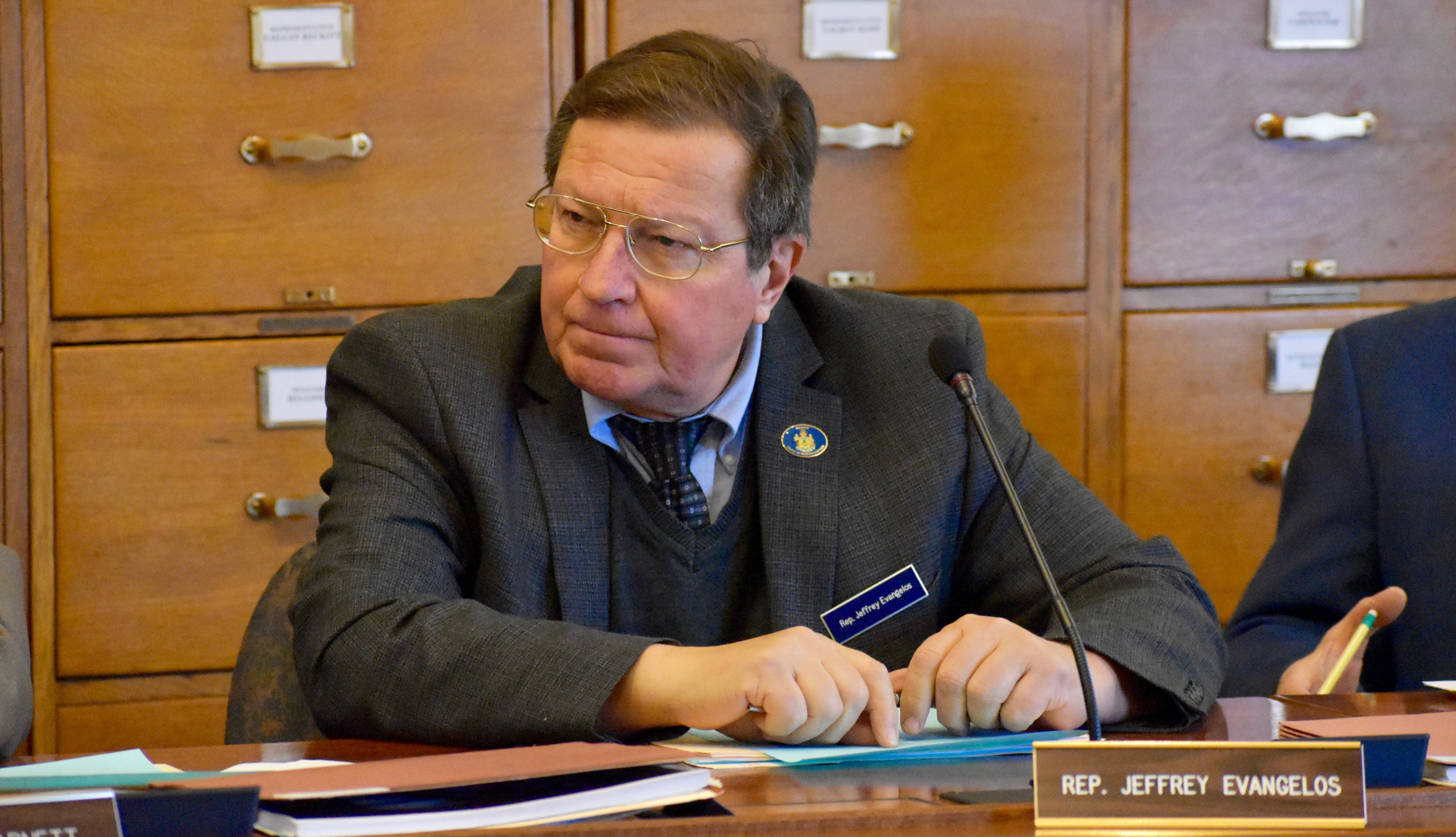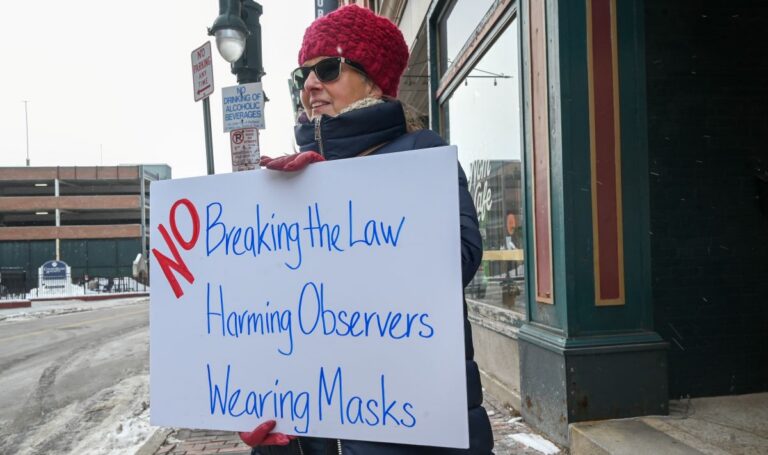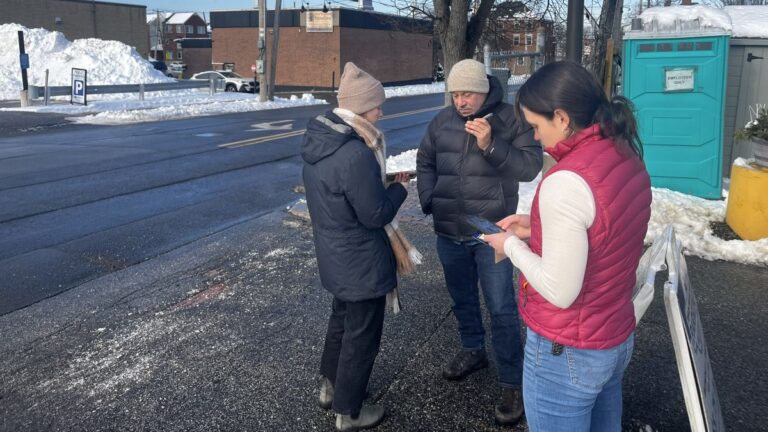More than a decade after Foster Bates was convicted of the 1994 rape and murder of Tammy Dickson of South Portland, two new witnesses came forward with information that could exonerate him. One said another man confessed on the night of the murder, and the other that she saw Dickson alive and well after Bates left her apartment that night.
But the new evidence was never considered. A judge dismissed Bates’ petition for a post-conviction review because the request was made more than a year after the judge thought Bates’ attorneys could have discovered the information through “due diligence.”
When Bates attempted to appeal the dismissal to the state supreme court, he was denied the required certificate of probable cause.
Now, a bill that would give people like Bates the opportunity to at least have their evidence considered by a judge is one step closer to becoming law in Maine.
The Legislature’s Judiciary Committee approved the bill, LD 302, in a 9-2 vote on July 24. Unlike previous versions of the legislation, the Attorney General’s Office does not oppose it.
The bill now faces a vote by the full legislature but is stymied until lawmakers reconvene and agree to take it up. The session was cut short in March over concerns about the coronavirus.
LD 302, sponsored by Rep. Jeff Evangelos (I-Friendship), would eliminate the time limit for people convicted of crimes to bring forward new evidence. If passed by the full Legislature, Maine would join 34 other states that do not place time limits on new evidence in post-conviction review.
The bill affects people who may be wrongfully convicted but do not have viable DNA evidence or constitutional violations on which to base an appeal. They are reliant on new witnesses or new evidence turning up, yet procedural hurdles make it difficult to bring forward that information.
Current state law sets a one-year time limit on petitioning to have a conviction reviewed based on new evidence, but when that year begins is a moving target. Rather than starting when the evidence was discovered, the year is counted from when the evidence “could have been discovered through the exercise of due diligence” and it is up to the judge to determine when that was. If the judge thinks the evidence could have been discovered more than a year before the petition was filed, the case can be dismissed before the judge even considers the evidence or its significance.
RELATED Evidence of innocence? Foster Bates’ story
If LD 302 passes, petitions for post-conviction review based on new evidence “may be filed at any time regardless of when the newly discovered evidence could have been obtained or discovered through the exercise of due diligence,” according to the legislation.
Only cases dismissed as untimely would be allowed to refile. Those that were denied after the evidence was reviewed would not be permitted to resubmit a petition on the same evidence.
Bates called the committee’s approval of the bill “optimistically encouraging” in an Aug. 13 text message from Maine State Prison.
“The bill provides constitutionality to the post-conviction review process that has limited the constitutional rights of defendants to present newly-discovered evidence,” he wrote. “Not only does the bill prevent an innocent person from spending decades in prison for a crime he or she did not commit, it also ensures justice for the victims and their families, providing them with confidence that the right person is incarcerated and not an innocent man or woman.”
A special session of the Legislature would have to be called for the bill to move forward. If it is taken up out of the more than 150 bills recommended by committees, then passed by the Legislature, it may still face a veto by Gov. Janet Mills. She opposed an actual innocence bill in 2017 when she was Attorney General.
Meagan Sway, policy counsel for the ACLU of Maine, said while it was heartening to hear legislators in the work sessions talking about not wanting to put limitations on an innocent person’s ability to find justice, it is looking increasingly unlikely that a special session will convene.
“I’m sad that we’re probably not going back into session because we’ll have to have the fight next year,” she said.
Access to justice vs. a burden to courts
Meeting the currently imposed time limit for bringing new evidence is difficult for prisoners for a variety of reasons.
Communicating from inside a correctional facility is challenging, and documented problems with indigent legal services in Maine have made things worse, Evangelos said at a work session last month. The time limit becomes nearly insurmountable with the due diligence clause.
Radha Natarajan, executive director of the New England Innocence Project, echoed that sentiment.
“There are many legitimate reasons why innocent people are unable to bring their case to court within strict time limits — including, for example, access to competent counsel, availability of resources for expert consultation or investigation, and the willingness of witnesses to speak honestly — but these reasons do not change the fact that the person is innocent,” she told The Maine Monitor.
“Hurdles to proving innocence are fundamentally hurdles to justice and an affront to the integrity of the criminal legal system,” Natarajan added. “Courts already serve as a gatekeeper for meritorious claims of innocence; time limits are an unnecessary and unfair burden to justice.”

Sway, of the ACLU, said people who are appealing their convictions often can’t pay for lawyers and are subject to a system lacking oversight.
“Poor people are less likely to have zealous representation and so when you remove time limits, you allow for the reality that many people don’t know much about the law, don’t know how to get into court and don’t have zealous advocacy,” she said. “(LD 302) allows for justice despite those limitations.”
Critics of the bill argue that loosening requirements for challenging convictions would threaten their finality and burden the courts.
“Without language limiting petitions in terms of time or number, criminal convictions can never be considered truly final during the lifetime of a defendant,” Legislative Analyst Julie Finn wrote to the Judiciary Committee, based on feedback from judicial leadership.
In Maine, between 102 and 128 petitions for post-conviction review have been filed each year since 2017, according to data Finn provided. She did not indicate how many were based on new evidence.
Assistant Attorney General Donald Macomber said most petitions for post-conviction review in Maine are based on claims of ineffective assistance of counsel. Most petitions are filed on time and receive a full review, he added.
Still, Macomber agreed that eliminating the time restriction for bringing forward new evidence could burden the courts, especially since people would be able to refile cases that were already dismissed for missing the deadline.
Sen. Michael Carpenter (D-Houlton), chair of the Judiciary Committee and a former attorney general, said while he’s sensitive to adding work for the courts, “that’s hard to balance against somebody being unjustly incarcerated.”
“There’s a lot of discussion about finality and the importance of finality. And what (LD 302) does is it recognizes that justice is more important than finality, and if we get it wrong, it’s not final.”
— Meagan Sway, ACLU of Maine
Forming a Post-Conviction Review Commission might be a way to sift through the cases that do come up and determine which should be brought forward, suggested Rep. Chris Babbidge (D-Kennebunk).
Macomber also voiced concern that eliminating the time limit could allow a convicted person to strategically hold new evidence and game the system by waiting to file after key state’s witnesses die, for example. This prompted questions about whether eliminating the time limit could cause safety issues for witnesses.
Rep. Thom Harnett (D-Gardiner), a co-sponsor of the bill, disputed that claim.
“If I were an incarcerated person and I have newly discovered evidence that exonerated me, I would not be sitting on that evidence, waiting 10 years in jail for other witnesses to either die or be unavailable,” he said. “Nobody’s going to sit on evidence that can bring them justice and get them outside of the walls of a penitentiary. I just don’t see that as happening.”
As for the principle of finality, Evangelos pointed out that Massachusetts allows a trial judge to grant a new trial at any time it appears justice may not have been done.
“The valuable finality of judicial proceedings must yield to our system’s reluctance to countenance significant individual injustices,” the Massachusetts rule reads.
“There’s a lot of discussion about finality and the importance of finality,” Sway, of the ACLU, said. “And what (LD 302) does is it recognizes that justice is more important than finality, and if we get it wrong, it’s not final.”
If LD 302 does not pass, people in Maine who are denied a review of new evidence in their case will continue to be able to appeal convictions by claiming ineffective counsel. A defendant could argue, for instance, that their lawyer was ineffective by not filing a petition based on new evidence by the time the court thinks it should have been done through due diligence, Rep. Donna Bailey (D-Saco) pointed out at a 2019 work session.
This is part of what Bates is claiming in a pending case filed in January.
People in that situation in Maine have one year after learning of the ineffectiveness to file an appeal, according to John Pelletier, of the Criminal Law Advisory Commission and Maine Commission on Indigent Legal Services.
But proponents of LD 302 say that’s insufficient.
There is a gray area between due diligence and ineffective assistance of counsel. In a 2017 paper in the Columbia Journal of Law and Social Problems, author Michael Cassel writes about petitioners across the country who found themselves in legal limbo where the standard for ineffective assistance of counsel is higher than the standard for due diligence.
Their attorneys, he wrote, were “apparently too good to be ineffective, but too bad to be diligent.”
It is uncertain where Maine courts would draw the line between due diligence and ineffective assistance.
Revised and resurfaced
LD 302 is a simplified version of a bill Evangelos introduced last session, which mirrored other states’ “actual innocence” laws, laying out a separate avenue for post-conviction review and guaranteeing a hearing for those claiming innocence.

Attorney General Aaron Frey opposed that version, saying it was unnecessary because there is already an avenue for people claiming innocence to bring forth new evidence.
He then wrote to the committee on May 2, 2019, that after listening to concerns raised during testimony at the bill’s public hearing about the time limits and other obstacles, it “does appear to be evident that examination of the post-conviction review system is warranted.” He offered to convene a stakeholder group to review the system and report back to the committee by the second session.
When this did not happen, Evangelos enlisted Augusta attorney Walter McKee, a member of the Maine Association of Criminal Defense Lawyers, to revise the bill to reflect the consensus that came out of committee discussion. The current version drops all reference to actual innocence and instead works within Maine’s existing post-conviction review framework by removing the time limit requirement for only those petitions based on new non-DNA evidence.
Though a formal stakeholder group was never convened, Frey engaged in one-on-one discussions with civil rights advocates, prosecutors, defense attorneys and prisoners about the post-conviction review process, AG spokesman Marc Malon said.
The AG’s Office has taken no formal position on the current version of LD 302, but Macomber, the assistant attorney general, said it’s a “significant improvement” over the original.
According to the Innocence Project of New York, 34 other states, through legislation or court rulings, have established no absolute time limits to introduce new, non-DNA evidence post-conviction, and the new evidence does not have to be tied to a constitutional claim.
Those states are: Arizona, California, Colorado, Connecticut, Delaware, Georgia, Hawaii, Illinois, Indiana, Iowa, Kansas, Kentucky, Maryland, Massachusetts, Michigan, Mississippi, Minnesota, Missouri, New Jersey, New Mexico, New York, Nevada, North Carolina, Ohio, Oklahoma, Oregon, Rhode Island, Texas, Utah, Vermont, Washington, West Virginia, Wisconsin and Wyoming.
Sen. Shenna Bellows (D-Manchester), another co-sponsor of LD 302, said she sees the bill as a first step toward further reform.
“I hope that this is an issue that we continue to think about and work on,” she said, “because I think that it’s vitally important that we make sure that people who are innocent, who were wrongfully convicted of a crime and wrongly incarcerated, have that ability to access the post-conviction-review process.”







